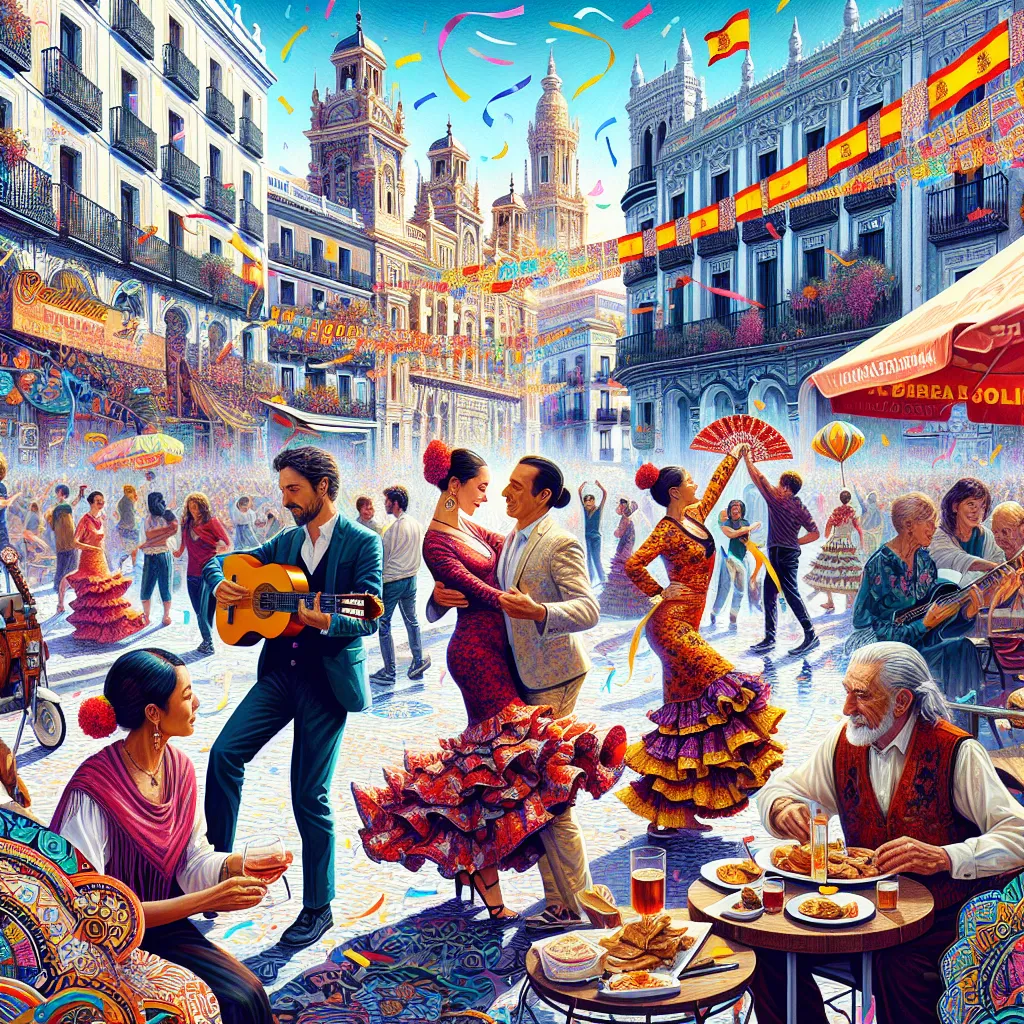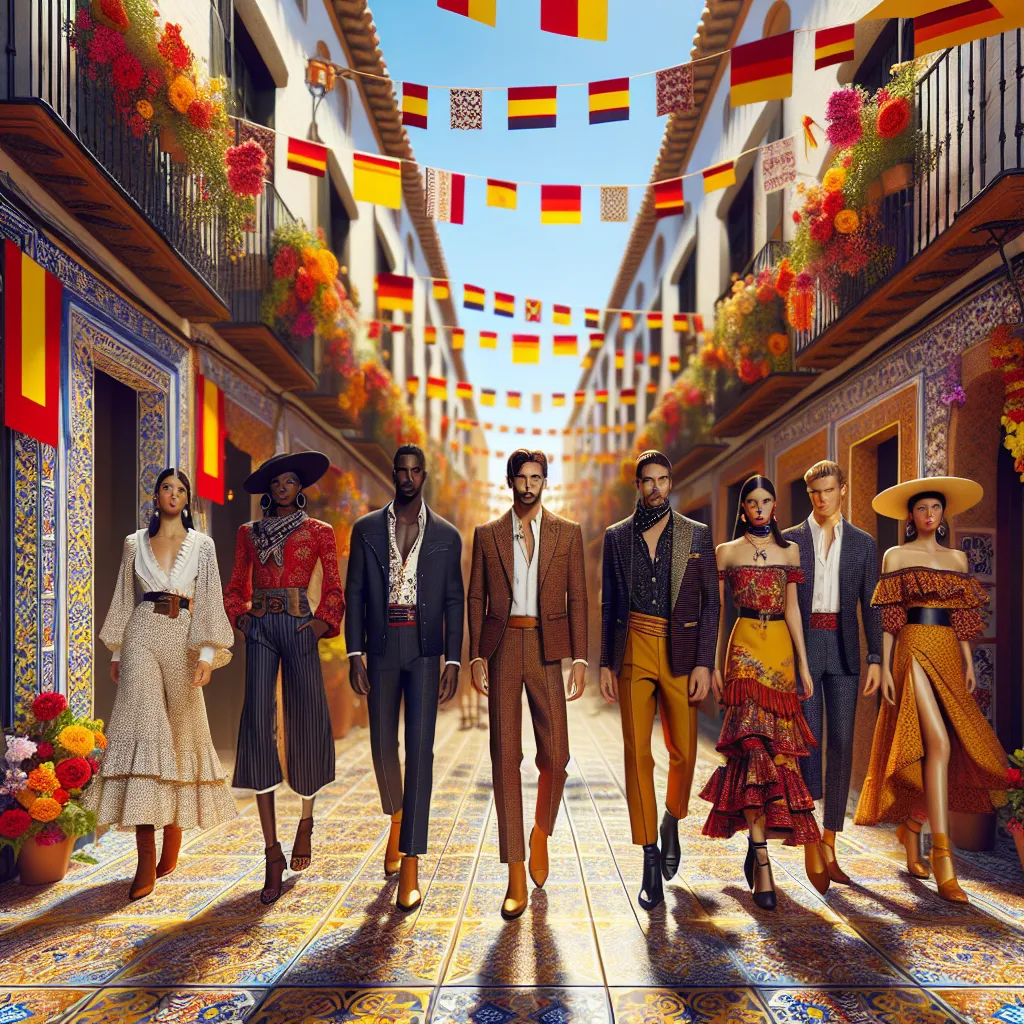Why Spain has become a fashionable country with a vibrant culture and traditions?

- How did Spain become a cultural and economic phenomenon in Europe?
- How do Spanish designers and holidays influence global fashion?
- How do holidays and traditions shape Spain's cultural identity?
The Spanish Phenomenon in Europe
Spain occupies a special place among European countries, being a real cultural and economic phenomenon. In the last decades of the twentieth century, its rapid development became a benchmark for many nations in Europe. Only some time after the end of Franco's despotic regime, Spain managed to successfully integrate into the European Union, becoming an example of reform and progress. This impressive rise is rightly considered a source of pride for Spaniards.
Cultural achievements
Spain is famous not only for its economy, but also for its many cultural achievements and unique aspects of life. For example, the works of the famous directorPedro Almodóvarbecame world-famous, and the architectural delightsRicardo Bofillaare striking in their originality and postmodern solutions. We should not forget about such brands asZarawhich has gained worldwide popularity and occupies a significant place on the Russian market. This emphasizes that Spain has confidently established itself on the world fashion scene.
Tradition and identity
This significant success could not have happened without the strong roots of tradition that persist even in the era of globalization. Spaniards are characterized by a strong national identity and a desire to preserve their traditions and culture, even within the European Union. This can be seen in the diverse regions of the country:
- ResidentsCataloniaactively demand the extension of their autonomous rights through various referendums.
- ResidentsAndalusiaare also in favor of greater autonomy.
Family values and lifestyle
Individualism is indeed highly valued in Spain, but family ties are emphasized along with it. For foreign visitors, adapting to the measured rhythm of life here becomes easy. It is easy to learn breakfasts and lunches are more frequent and more measured. Getting used to long breaks when stores close for a couple of hours in the afternoon becomes a pleasant experience, as do late dinners, which occur much later than in most European countries.
In addition, many foreigners quickly internalize a known word“mañana”.which means “tomorrow” and implies putting things off until later.
Major cities in Spain
If we talk about the most lively cities in Spain, it is worth highlighting:
These cities are full of theaters, great museums and art galleries. In the evening, eating establishments are at the height of activity, trendy bars are packed with customers who know no fatigue. No matter what city you're in, it's worth paying attention to the locals - their ability to enjoy life and relax is impressive.
Spain's modern image
Spain's modern image is given special attention. Here, women dress with the intention of making a powerful impression, choosing not only clothes but also striking accessories such as bright red shoes and stylish handbags. The Spanish fashion industry today is exceptionally diverse and vibrant. Aesthetics and splendor are those striking features of Spanish style that always attract attention and surprise with their beauty.
Achievements of local designers and models
In Spain, many local designers and fashion designers have achieved considerable success on the international stage. They actively compete for the interest of buyers not only in major cities such as Madrid and Barcelona, but also in fashion capitals such asMilan, London, New York and, undoubtedly, Moscow.
One of the most striking brands in this context is GalicianZarawhich has long established itself in the fashion world by offering its collections at affordable prices to a wide audience and is present in key cities around the world.
Famous brands and their faces
Another notable example is the brandMangowho recently decided to make a famous actressMila Jovovichthe face of his company and even launched a special collection designed with her participation. Also worth mentioning is the brandCusto Barcelonaaimed at active and creative young people, providing unique and colorful models.
- This brand, which started in the 1980s with custom t-shirts, has changed over the years and has become known for its bold and original collections.
- Other popular brands include.Lydia Delgado,CamperandAgatha Ruiz de la Prada.It can be seen that they have also gained many fans both in Spain and far beyond.
Shopping in Spain
When it comes to shopping, any major Spanish city is definitely worth a visitEl Corte Inglés- The largest department store chain in the country, where the most famous national brands are represented. But don't forget about the smaller boutiques, which can offer truly unique pieces that enrich the diversity of the fashion market with their sophistication.
The culture of celebration in Spain
The Spanish mentality, filled with joy and the desire to celebrate, creates such an atmosphere that the feeling of festivity seems to reign all year round. While this may be a slightly exaggerated statement, it still reflects reality.
It's interesting how the cheerful mood is seamlessly intertwined with Catholic traditions, giving each celebration a special significance. Many seemingly completely secular events actually have deep religious roots, and the processions that take place on these days often represent important church dates.
Highlights of the celebration
Christmas and All Saints' Day are the high points of the country's festive season. Holy Week is celebrated with much greater honor than in other European countries and runs from Palm Sunday until Easter, when participants dress up in outfits inspired by the story of Nazareth.
Regional holidays for tourists
But foreign tourists are particularly interested in regional festivals, which are rooted in long-standing folkloric traditions. These festivals provide an opportunity to see the deep roots of modern rituals, in which Christian traditions and echoes of the Moorish past are intertwined.
- Fairs and festivals, which are traditionally held in certain seasons and based on the agricultural calendar, invariably attract attention and create an atmosphere of joy.
- They are always interesting to visit and can be an unforgettable part of your trip.

Holidays in Spain
There are three major and famous fiestas in Spain that attract many visitors. The first is the Seville sherry festival, which takes place in the town of Jerez de la Frontera.
9 October 2024
9 October 2024
29 September 2025

Dance as part of culture
Spanish culture is closely linked to dance, which is evident in folk traditions and classical music, in which flamenco takes center stage. In cozy taverns you can often find live performances of musical groups, where the performers demonstrate deep feelings through their passionate dances, such as:
- love
- sadness
- inner feelings
Every clapping of palms and every piercing guitar melody resonates in the hearts of the audience. Even in smaller towns and cities, you can see the spontaneous and colorful dances of women performing flamenco.
Variety of dances
Mallorca is also popularbolero- is an elegant and rhythmic group dance accompanied by the playing of guitars, castanets and violins. While the traditional dance became popular in Argonne.hotawhich is similar in structure to the waltz, but with many variations. The Catalans are proud of theirwith a circular sardana danceIn the northwestern regions of Spain - Galicia, Asturias and Cantabria - the tradition of bagpipes and melancholy songs is still alive. In the northwestern regions of Spain - Galicia, Asturias and Cantabria - the tradition of bagpipes and melancholy songs is preserved.
Bullfighting as a tradition
Corrida is a pastime with its roots in paganism, and it is not just an exciting spectacle, but an important element of Spanish culture and identity. Today, bullfighting has transformed into a professional sport, while retaining its nature and unique characteristics. The main participants in bullfighting arematadors- outstanding individuals who embody courage, agility and artistry. Although this form of entertainment is controversial among animal rights activists, for many Spaniards bullfighting remains a sacred tradition.
Soccer and culture
Soccer also holds a special place in the heart of the Spanish people, having the same importance as bullfighting. Millions of people experience each game with an almost religious devotion. For many, attending matches becomes a way to forget about everyday life and experience an emotional release.
Team rivalry
Rivalries between teams such as“Barcelona.”and“Real.”The number of clubs is constantly increasing. These clubs not only compete with each other in the domestic arena, but also clash in international competitions. Today, cycling is beginning to occupy an important niche in the country's sporting culture, rivaling the popularity of soccer matches. Almost every city in Spain has its own cycling teams, which confirms the growing interest in the sport.
Conclusion
In conclusion, I would like to emphasize that Spain is indeed a country that is felt as a “prodigy” in the European arena. Its achievement in economy, culture, fashion and other areas emphasizes the diversity and versatility of Spanish society. In the short time since the fall of Franco's regime, Spain has managed not only to adapt to the new conditions, but also to emerge as a frontrunner among European nations. This is inspiring and speaks to the resilience and spirit of the Spanish people.
Cultural heritage
Equally impressive is the unique culture, where traditional values and modernity coexist beautifully. Spaniards are proud of their heritage, which is evident in:
- art,
- architecture
- holidays.
These exciting events, full of life and joy, give not only locals but also tourists the opportunity to enjoy the generosity of the Spanish soul. The Spanish know how to find joy in every moment and live by the principle that life is not a race, but the art of enjoying every moment.
Fashion and design
It's no coincidence at all that Spanish fashion and aesthetics are attracting attention on the international stage. Brands such as.ZaraandMangoThe Spanish cities are just the tip of the iceberg, showing that Spain not only preserves its traditions, but also actively innovates, creating unique and modern collections. Visiting Spanish cities, you will not only enjoy the magnificent architecture or cuisine, but also experience an extraordinary lifestyle permeated with fashion and design.
Community values
By emphasizing family values and individualism, Spaniards create a society where everyone feels part of a close-knit family that accepts and supports each other. This spirit of unity and community is especially evident in the holidays, where Catholic traditions are intertwined with folklore and folk customs, creating a unique atmosphere of warmth and joy.
Result
Spain is thus not only a multifaceted and dynamic country, but also a place where tradition and modernity, individuality and collectivity, work and leisure coexist in harmony. This country continues to inspire and amaze, creating echoes of its greatness in the hearts of people around the world.
Tags
Comment
Popular Posts
9 October 2024
1487
9 October 2024
9946
29 September 2025
398
Popular Offers

Subscribe to the newsletter from Hatamatata.com!
Subscribe to the newsletter from Hatamatata.com!
I agree to the processing of personal data and confidentiality rules of Hatamatata













